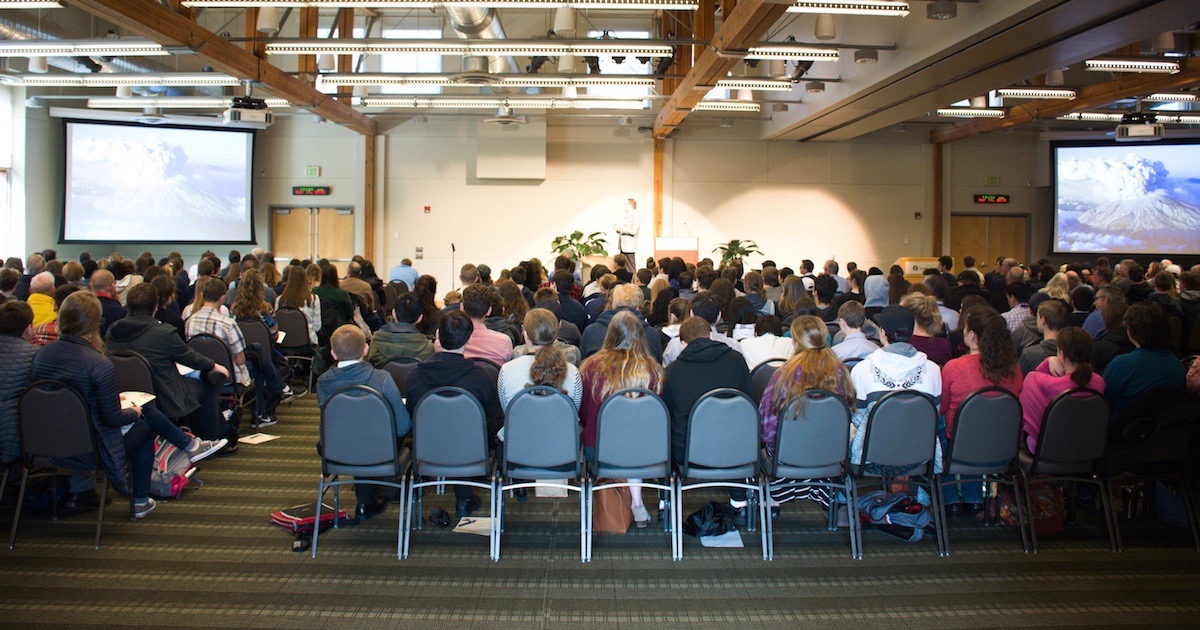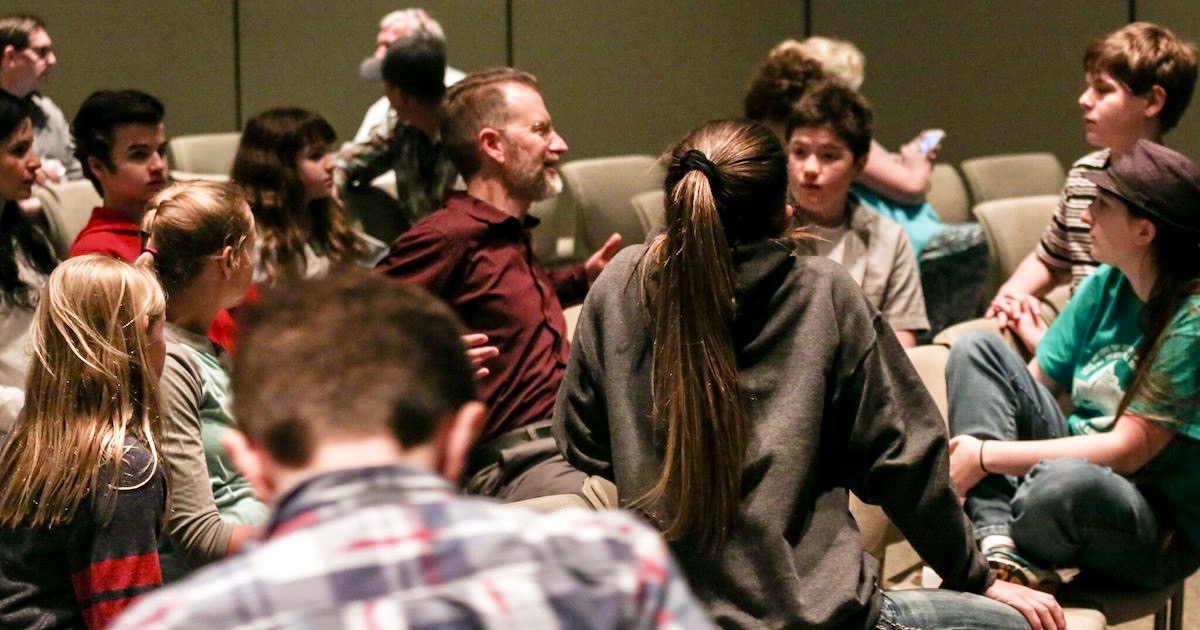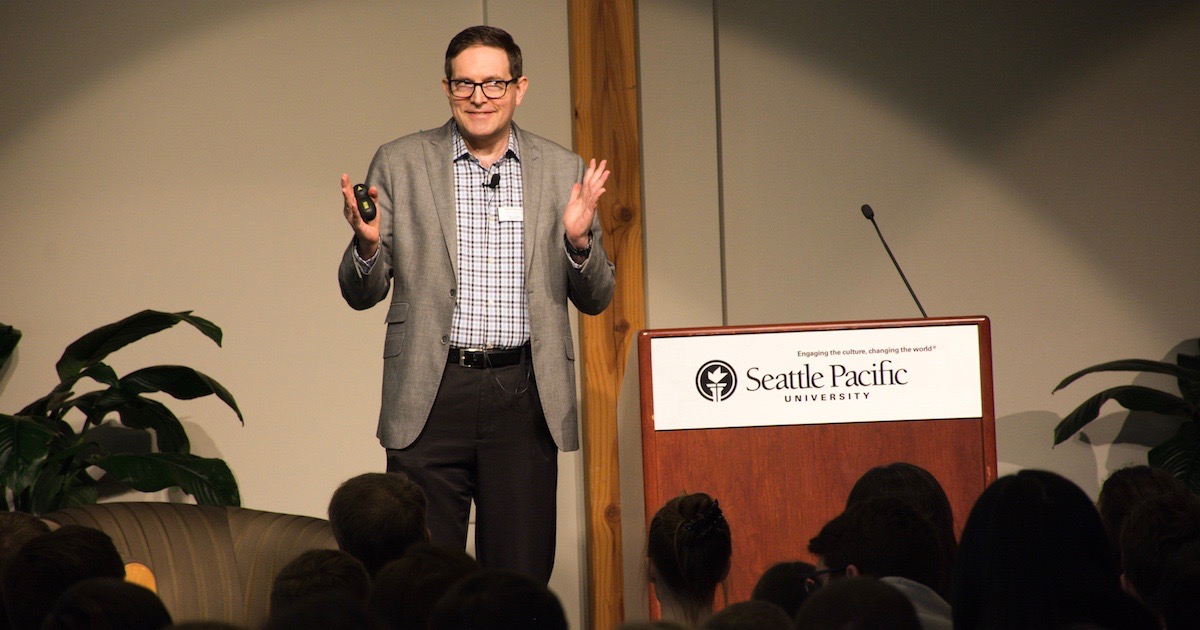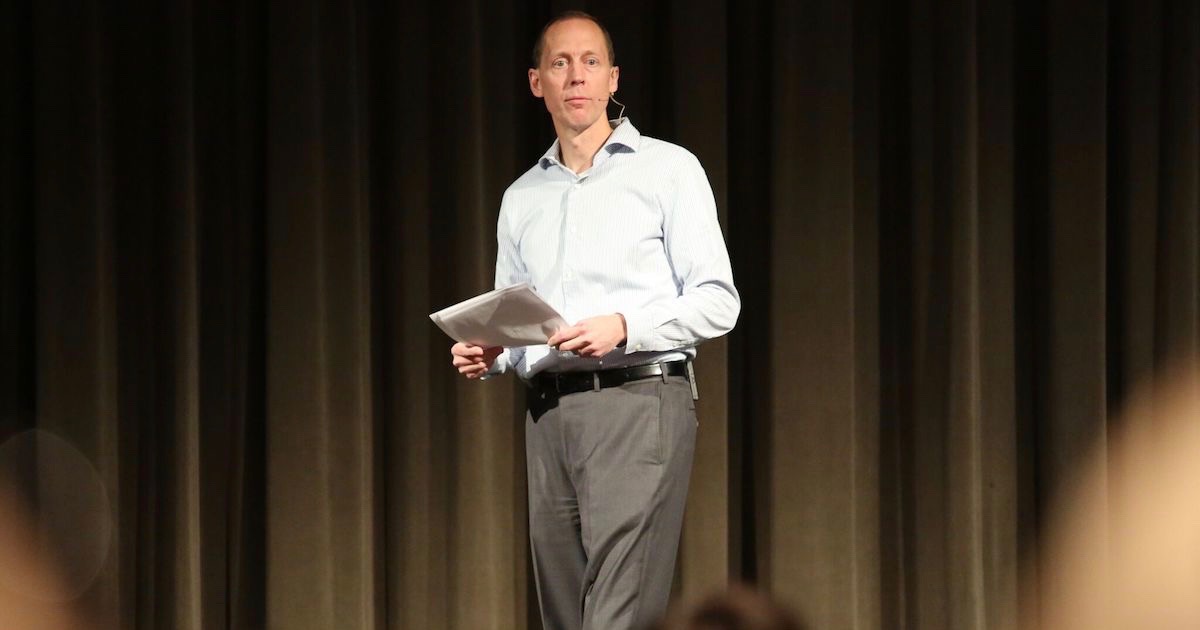 Education
Education
 Evolution
Evolution
 Intelligent Design
Intelligent Design
This Year’s ID Education Days Were a Smash Success

The Center for Science & Culture’s recent ID Education Days in Seattle and Dallas were big hits again. Seattle’s third annual ID Education Day hosted more than 300 students. And the numbers for the Dallas gathering roughly doubled from last year’s inaugural event, with about 200 in attendance this year.
An educator in attendance expressed appreciation for “seeing scientific evidence illustrated in understandable ways.”
As the two events demonstrated, many high school students are eager to go beyond the brief and airbrushed presentation of evolutionary theory found in their biology textbooks, and are full of questions.
Case in point: After historian of science Mike Keas spoke at the Dallas event about the Judeo-Christian roots of modern science, he answered questions from the stage for about 15 minutes, and then in the break, the former professor found an impromptu class forming around him (an actual instance of spontaneous generation!). The students were on every side of him, peppering him with questions and soaking up what he had to say.

This scene was played out with minor variations for the various speakers in Dallas and Seattle. German paleo-entomologist Günter Bechly joined the Dallas and Seattle events via Skype. And after he had answered questions for the whole group in Dallas, he agreed to let students line up in front of the computer he was Skyping into and ask additional questions.
A paleontologist who has headed up a major wing of one of the most prestigious natural history museums in Europe and who recently switched from Darwinism to design was fielding questions from high school students one-on-one!
These students know the origins debate isn’t settled, but they don’t often have a chance to dialogue with scientists skeptical of modern evolutionary theory. ID Education Day fills that need. As one student put it, the event gave them a chance to ask questions and hear “knowledgeable and wise answers to each question.”
A student attending the Seattle event said her favorite thing was “being able to interact with the speakers and learning new ideas and information.” This was echoed by dozens of other students.


The private and homeschooled students who attended these events have now returned to their regular studies. We encourage their educators to foster open-minded discussion of the scientific evidence related to origins science, exploring questions that the disciples of scientific materialism rule out of bounds.
Does the creative power of biological adaptations appear to be far-reaching or quite limited? Are there patterns in the natural world that are best explained by reference to an intelligent cause? Is there such evidence in biology? What about in physics, chemistry, and cosmology? Scientific materialism says, Don’t go there? But in the true spirit of no-holds barred scientific exploration, we say, Go ahead. Go there.
If you are an educator yourself and able to bring you students to Dallas or Seattle, we hope you will join us next spring.
Photos (from the top): ID Education Day in Seattle, Mike Keas with students, Brian Miller, Jonathan Witt.
